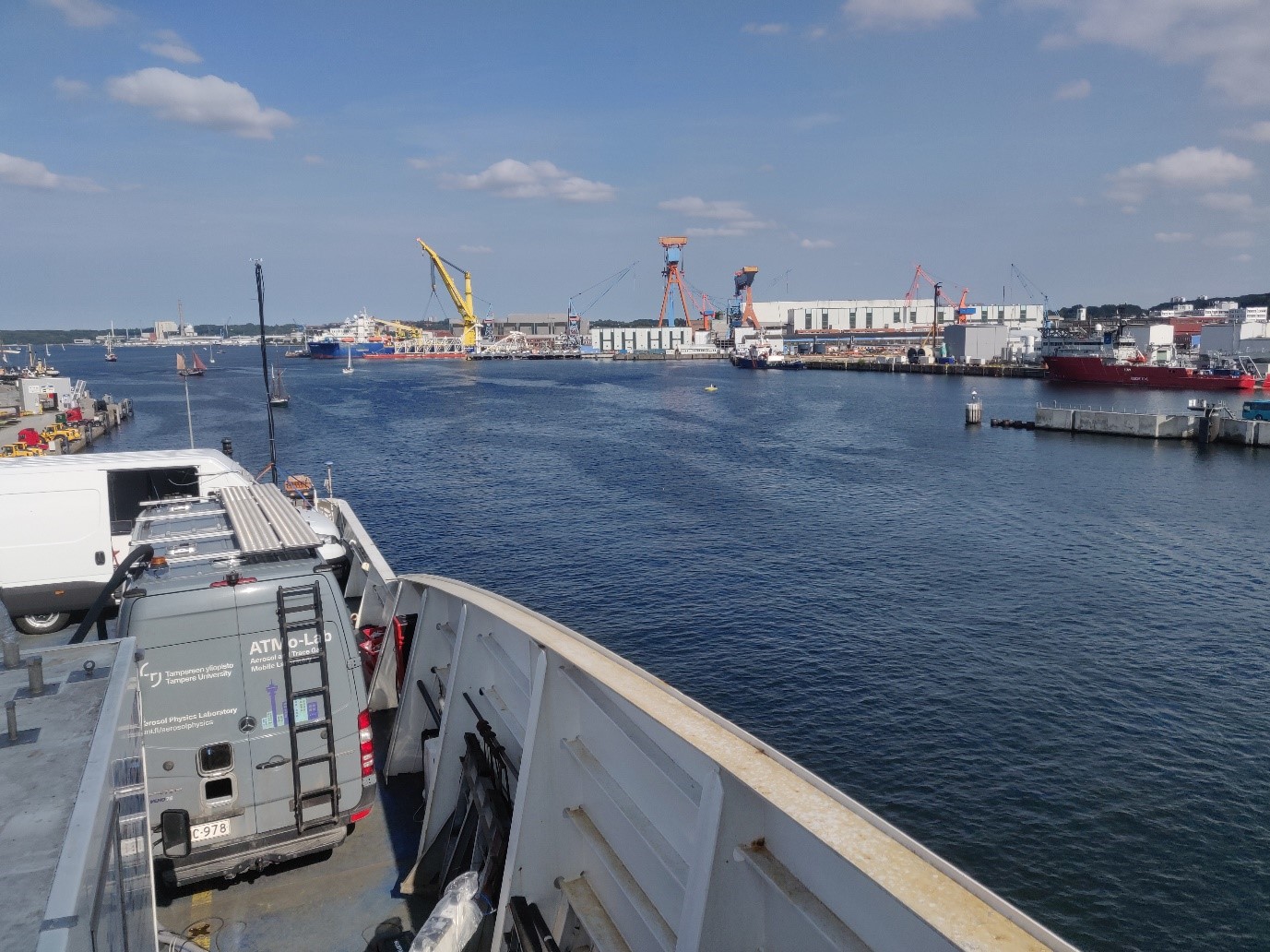SCIPPER (Shipping Contributions to Inland Pollution Push for the Enforcement of Regulations) is a European project which aims at deploying state-of-art and next-generation measurement techniques to monitor emissions of vessels under their normal operation.
While vessels exhibit comparatively low fuel consumption per unit of cargo-distance, they produce high specific emissions of nitrogen oxides (NOx), sulphur oxides (SOx) and particulate matter (PM). Such air quality (AQ) issues have been addressed by introducing regulation to ship fuel sulphur content (FSC). This creates requirements to monitor the compliance of ships with sulphur regulations separately in port areas and in the open-seas. Ships also emit primary PM that contains Black Carbon (BC), Organic Carbon (OC), ash, and metallic aerosol. PM from vessels is currently not regulated but BC control is under discussion within the IMO, due to its potent impacts on climate. Secondary aerosol, through the photooxidation of SOx, NOx and OC, also has consequences to coastal AQ. Better understanding of ship PM and its speciation is required for introducing effective regulatory measures. In this context, environmental regulations can only be effective when vessels are regularly checked for compliance.
Against this background, the main objectives of SCIPPER are to provide evidence on the performance and capacity of different techniques for shipping emissions monitoring and regulations’ enforcement, and to assess the impacts of shipping emissions on air quality, under different regulatory enforcement scenarios. The SCIPPER objectives were targeted in five real-world experimental campaigns involving actual vessels and the largest ports in the EU.
As a result, SCIPPER produces improved technologies and techniques for emission monitoring, updated advanced emission factors for ship emissions, improved ship plume modeling, and new information of ship plume effects on local air quality in port cities. An overview of recent SCIPPER results can be found at https://www.scipper-project.eu/.
Within the ACCC, the activities of SCIPPER are related to Research Program 2: Air quality – climate interactions and Impact Tasks 6: Novel atmospheric observation tech and 7: Solving the air pollution cocktail. The project has 18 partners, and it is coordinated by Aristotle University Thessaloniki. ACCC members Tampere University and the Finnish Meteorological Institute participate in both the experimental and modelling activities. The SCIPPER project has received funding from the European Union’s Horizon 2020 research and innovation programme under grant agreement Nr.814893.
